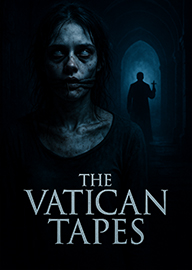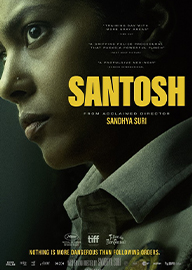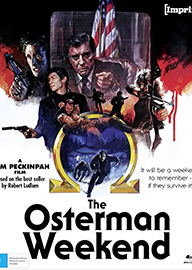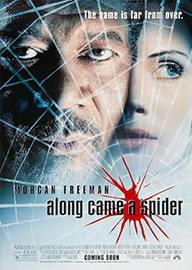Oslo, August 31st
- 7.6
- Drama
- 2011
- 1h 35m
- 14+
A critically acclaimed Norwegian drama directed by Joachim Trier. The film follows a day in the life of Anders, a man in recovery from addiction, as he navigates the streets of modern Oslo. Through encounters with friends and strangers, Anders grapples with an existential crisis, reflecting on his past and contemplating his future. With a poignant and introspective narrative, the film offers a deeply emotional journey that explores themes of personal struggle, redemption, and hope, providing a powerful character study set against the backdrop of contemporary urban life.













Comments
0Reviews
0Summery
1Please sign in to comment.
Please sign in to review.
"Oslo, August 31st," directed by Joachim Trier, is a deeply affecting Norwegian drama that captures a single day in the life of a recovering drug addict. Released in 2011, the film is based on the novel "Le Feu follet" by Pierre Drieu La Rochelle and offers an introspective and poignant exploration of existential despair, addiction, and the search for meaning. Starring Anders Danielsen Lie in a remarkable performance, the film immerses viewers in the emotional turmoil of its protagonist, Anders.
The story unfolds over the course of 24 hours, focusing on Anders, who is nearing the end of his rehabilitation program. He is granted a day pass to visit Oslo for a job interview and to reconnect with people from his past. As Anders navigates the city, the film delves into his internal struggle, highlighting the chasm between his aspirations and the reality of his situation. The film opens with a sequence of voiceovers and images that evoke memories of Oslo, setting the tone for a reflective and melancholic journey.
One of the film's most compelling aspects is its portrayal of Oslo as more than just a backdrop; the city itself becomes a character. Trier's direction and Jakob Ihre's cinematography capture the beauty and loneliness of the urban landscape, reflecting Anders' isolation and disconnection. The film's visuals are marked by a stark, naturalistic style that enhances the authenticity of the narrative. The use of long takes and minimalistic composition emphasizes the contemplative nature of Anders' journey.
Throughout the day, Anders encounters friends, family, and strangers, each interaction shedding light on different facets of his life and psyche. These meetings reveal the deep scars left by his addiction and the impact it has had on his relationships. A visit with an old friend, Thomas, played by Hans Olav Brenner, is particularly poignant, as their conversation oscillates between nostalgic reminiscence and harsh reality. The dialogue is raw and unfiltered, offering insights into Anders' feelings of failure and his existential crisis. The job interview, a key event in Anders' day, further underscores his internal conflict. Despite his qualifications and the potential for a new beginning, Anders' self-doubt and sense of unworthiness overshadow the opportunity. This scene epitomizes the film's exploration of the struggle to reconcile one's past with the hope for a future. Anders' candidness about his addiction during the interview is both a moment of vulnerability and a testament to the weight of his experiences.
Music plays a significant role in "Oslo, August 31st," with a carefully curated soundtrack that complements the film's emotional landscape. The music ranges from classical pieces to contemporary songs, each selection enhancing the mood of the scenes and providing an aural counterpart to Anders' inner turmoil. The film's sound design, with its emphasis on the ambient noises of the city, also contributes to the immersive atmosphere. The climax of the film is a culmination of Anders' introspection and despair. As night falls, he revisits places from his past, each location stirring memories and regrets. The film's narrative structure, which moves seamlessly between present events and flashbacks, effectively conveys the continuous presence of Anders' past in his current life. The final scenes are both haunting and heartbreaking, leaving a profound impact on the audience.
"Oslo, August 31st" is a masterful character study that addresses universal themes of redemption, loneliness, and the search for purpose. Anders Danielsen Lie's performance is riveting, capturing the complexity of a man grappling with his demons and striving for a sense of belonging. The film's unflinching honesty and emotional depth make it a poignant meditation on the human condition. In conclusion, "Oslo, August 31st" stands out as a poignant and evocative film that delves deep into the psyche of its troubled protagonist. Joachim Trier's direction, combined with the strong performances and evocative cinematography, creates a powerful narrative that resonates on multiple levels. The film's exploration of addiction, identity, and existential despair is both specific to Anders' experience and universally relatable, making it a profound cinematic achievement.